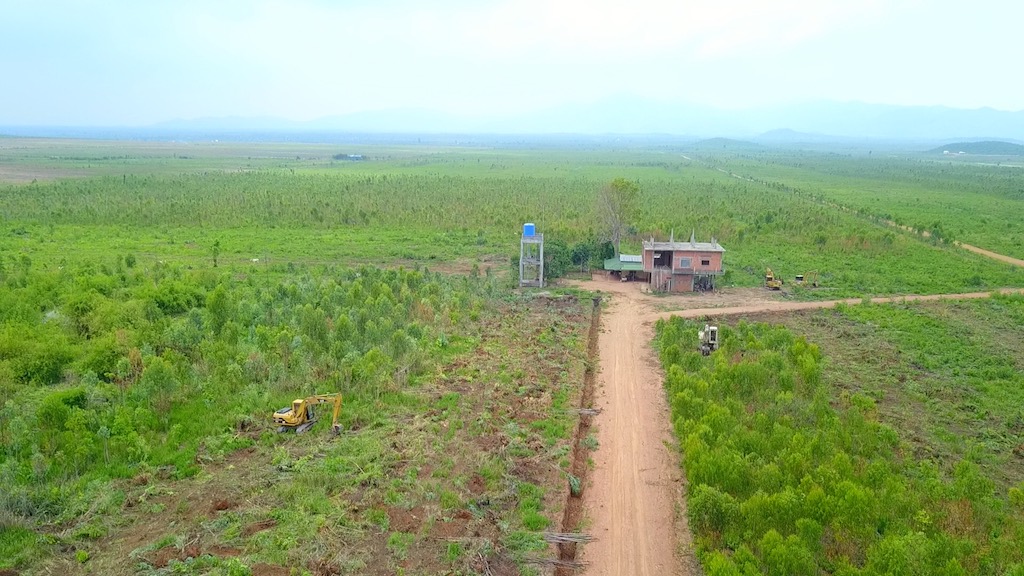How to Legally Structure a Foreign-Owned Business in Cambodia (2025 Guide)
Cambodia is rapidly emerging as a strategic destination for foreign direct investment (FDI), thanks to its pro-business policies, young workforce, and access to ASEAN markets. But before diving into this promising market, one of the most critical steps for any foreign investor is understanding how to legally structure a business in Cambodia.
In this comprehensive guide, we’ll walk you through the legal frameworks, ownership models, registration process, and compliance requirements—so you can confidently launch your venture with Adaeng Development Co., Ltd. as your trusted partner.
Why Cambodia?
Cambodia’s GDP has grown steadily over the past decade, with the World Bank projecting continued expansion driven by construction, tourism, and manufacturing. The country’s strategic location between Thailand and Vietnam, combined with duty-free access to the EU under the Everything But Arms (EBA) scheme, makes it a compelling base for regional operations.
Key advantages include:
- 100% foreign ownership in most sectors
- Competitive labor costs
- Investor-friendly tax incentives
- Membership in ASEAN and RCEP
For more insights, explore Cambodia’s investment profile on the World Bank website.
Legal Framework for Foreign Ownership
Cambodia’s investment environment is governed by the Law on Investment (2021) and the Law on Commercial Enterprises (2005). These laws allow foreign investors to fully own companies in most sectors, with exceptions in land ownership and certain protected industries.
The Council for the Development of Cambodia (CDC) is the primary regulatory body overseeing investment projects. Investors seeking tax incentives or Qualified Investment Project (QIP) status must register with the CDC.
You can review the full Investment Law of Cambodia (2021) for detailed provisions.
Business Structures Available to Foreigners
Foreign investors can choose from several legal entities, each with its own benefits and limitations:
1. Limited Liability Company (LLC)
- Most common structure
- Requires at least one director and one shareholder
- Can be 100% foreign-owned
- Suitable for trading, services, and manufacturing
2. Branch Office
- Extension of a foreign parent company
- Cannot engage in profit-generating activities unless registered as a commercial enterprise
- Ideal for market research or liaison purposes
3. Representative Office
- Cannot earn revenue or sign contracts
- Used for promotion and coordination
- No minimum capital requirement
4. Joint Venture
- Partnership with a local entity
- Useful for sectors with ownership restrictions (e.g., land)
Land Ownership and Alternatives
Foreigners cannot directly own land in Cambodia. However, there are legal alternatives:
- Long-Term Leases: Up to 50 years, renewable
- Strata Titles: For condominiums above the ground floor
- Nominee Structures: Risky and discouraged due to legal ambiguity
Adaeng Development specializes in land acquisition strategies that comply with Cambodian law. Learn more on our Land Services page.
Step-by-Step Business Registration Process
Here’s how to legally register your business in Cambodia:
Step 1: Name Reservation
- Submit a name request to the Ministry of Commerce (MOC)
- Takes 1–3 business days
Step 2: Company Registration
- Register online via the Business Registration Portal
- Submit Articles of Incorporation, shareholder details, and capital structure
Step 3: Tax Registration
- Obtain a Tax Identification Number (TIN) from the General Department of Taxation
- Register for VAT if applicable
Step 4: Sector-Specific Licenses
- Required for industries like construction, tourism, or finance
Step 5: QIP Registration (Optional)
- Apply to the CDC for investment incentives
Taxation and Compliance
Cambodia has a relatively simple tax regime:
| Tax Type | Rate |
|---|---|
| Corporate Income Tax | 20% |
| VAT | 10% |
| Withholding Tax | 14% (non-resident) |
| Minimum Tax | 1% of turnover |
Annual compliance includes:
- Monthly tax filings
- Annual financial statements
- Labor compliance (NSSF, employment contracts)
For up-to-date tax rates, visit the General Department of Taxation.
Common Mistakes to Avoid
- Using nominee shareholders without legal safeguards
- Skipping due diligence on land or partners
- Failing to register for tax within 15 days of incorporation
- Underestimating compliance costs
Avoid these pitfalls by working with a local expert like Adaeng Development Co., Ltd., who can guide you through every step.
International Comparisons
Compared to neighboring countries:
- Vietnam has stricter licensing and longer setup times
- Thailand limits foreign ownership in many sectors
- Malaysia offers incentives but has higher labor costs
Cambodia strikes a balance between ease of entry and growth potential, especially for SMEs and greenfield investors.
Why Work With Adaeng Development?
At Adaeng Development, we don’t just help you register a business—we help you build a future. Our services include:
- Legal structuring and registration
- Land acquisition and due diligence
- Business setup and licensing
- Investment matchmaking and project facilitation
We’ve helped clients from Singapore, France, China, and the U.S. establish successful ventures in Cambodia’s most promising sectors.
Explore our Work With Us page to learn how we can support your journey.
Conclusion
Structuring a foreign-owned business in Cambodia is both accessible and rewarding—if done correctly. With the right legal foundation, strategic location, and local expertise, your venture can thrive in one of Southeast Asia’s most dynamic markets.
Ready to invest in Cambodia? Let Adaeng Development Co., Ltd. be your trusted partner. Contact us today to schedule a consultation.


